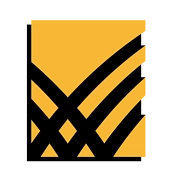About Atomic Industries
Atomic Industries is reinventing how the world makes things. From cars and aerospace systems to medical devices and packaging, most physical goods begin life in a mold or are shaped by a manufacturing tool. Producing these tools has always been slow, manual, and dependent on scarce expertise, taking weeks or months. We’re changing that.
At our Detroit headquarters, we combine the industrial DNA of America’s manufacturing heartland with the speed, intelligence, and precision of Silicon Valley. Our AI-driven platform tackles the hardest problems in geometry, process planning, and fabrication, collapsing production timelines from months to days and soon, minutes. We don’t just build software; we run a fully operational factory where our technology produces production-grade tooling every week, enabling tight feedback loops and rapid iteration.
Backed by top-tier investors, we’re restoring speed, flexibility, and capability to the American industrial base. Our mission is to make manufacturing as agile and scalable as the digital world, and in doing so, rebuild the infrastructure of the physical economy.
About the Role
As a Computational Geometry Engineer at Atomic, you’ll develop the software infrastructure that transforms raw part designs into simulation-ready, manufacturable, and fabrication-driven representations. You’ll build tools to analyze, manipulate, and reason about complex 3D models, ensuring they’re robust enough to drive fully automated design and production systems.
This role is ideal for engineers who love working at the intersection of geometry, algorithms, and real-world manufacturing.
What You’ll Do
Develop algorithms to work with B-rep, mesh, and NURBS representations
Implement tools for geometric healing, simplification, conversion, and constraint enforcement
Build high-performance geometry pipelines that integrate with simulation and process planning tools
Work with both open and proprietary kernels (e.g., OpenCascade, Parasolid)
Design systems for feature extraction, topology classification, and manufacturability analysis
Collaborate with product, simulation, and automation teams to expose geometric logic to upstream workflows
What We’re Looking ForMinimum Qualifications
5+ years of experience working with computational geometry, CAD, CAM, or graphics systems
Strong knowledge of geometric representations: B-reps, meshes, point clouds, surface/spline models
Proficiency in C++ and Python; familiarity with libraries such as OpenCascade, Parasolid, CGAL
Experience building performant systems for geometry manipulation or modeling
Ability to reason about edge cases, numerical stability, and algorithmic robustness in 3D environments
Background in manufacturing, simulation, or process automation
Experience designing geometry tooling for downstream applications like toolpath planning or FEA meshing
Familiarity with topology optimization, constraint solving, or CSG representations
Contributions to open-source geometry or CAD systems
How We Work
Fast iteration: We deploy code daily and validate it in the factory every week
Factory-first mindset: Engineers spend time on the shop floor to understand the real-world impact of their work
Low ceremony, high ownership: We value well-written design docs, tested code, and real results — not meetings
Collaborative culture: Geometry, AI, and robotics teams are tightly integrated and co-develop the product together
Benefits
Competitive salary and generous equity package
Full medical, dental, and vision coverage for employees and dependents
401(k)
PTO with a 15-day minimum
Quarterly team travel to Detroit
Visa support for TN, E‑3, and O‑1 candidates
Hardware stipend and on-site prototype lab access
Top Skills
Similar Jobs
What you need to know about the Colorado Tech Scene
Key Facts About Colorado Tech
- Number of Tech Workers: 260,000; 8.5% of overall workforce (2024 CompTIA survey)
- Major Tech Employers: Lockheed Martin, Century Link, Comcast, BAE Systems, Level 3
- Key Industries: Software, artificial intelligence, aerospace, e-commerce, fintech, healthtech
- Funding Landscape: $4.9 billion in VC funding in 2024 (Pitchbook)
- Notable Investors: Access Venture Partners, Ridgeline Ventures, Techstars, Blackhorn Ventures
- Research Centers and Universities: Colorado School of Mines, University of Colorado Boulder, University of Denver, Colorado State University, Mesa Laboratory, Space Science Institute, National Center for Atmospheric Research, National Renewable Energy Laboratory, Gottlieb Institute

.png)
